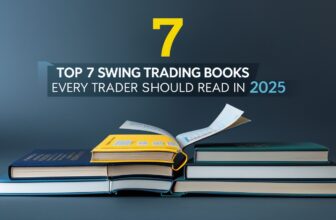
The term “insider trading” often carries a shroud of mystery and intrigue. What exactly does it entail, and why is it such a hot topic in the world of investments and securities? In this blog article, we’ll unravel the secrets behind insider trading, shedding light on its definition, legal implications, and the real-world impact it has on financial markets.
Insider trading is the illegal practice of buying or selling a security in a publicly traded company based on non-public, material information. It’s a serious financial crime with significant legal consequences, as it undermines market integrity and fairness. This blog will delve into its definition, legal implications, and impact on financial markets.
Key Takeaways:
- Insider trading involves buying or selling securities based on non-public information about a company.
- It is legal if the insider reports the trade to the SEC, but becomes illegal when the information is still non-public.
- Insider trading is a serious offense that can lead to fines and imprisonment.
- Investors should be aware of the definition and laws surrounding insider trading to protect their investments.
- Transparency and compliance are essential in preventing and detecting insider trading.
What is Insider Trading?
Insider trading, a term frequently heard in the financial world, can be puzzling for both novice and experienced traders. In this guide, we’ll provide a clear and transparent explanation of insider trading, breaking down its key components and the implications it holds in the trading landscape of the United Kingdom.
Insider trading is the act of buying or selling a company’s stock or other securities by someone who possesses non-public, material information about the company. This type of trading is legal if the insider reports their trade to the Securities and Exchange Commission (SEC). However, it becomes illegal when the material information is still non-public. Insider trading is a serious offense that can result in fines and imprisonment. It is important for investors to understand the definition and laws surrounding insider trading to protect their investments.
Insider trading involves buying or selling a publicly traded company’s stock or other securities by individuals who possess non-public, material information about that company. This information is not available to the general public and has the potential to significantly influence the decisions of investors regarding the purchase or sale of those securities.
What Constitutes Insider Trading?
Insider trading is a serious offense that involves trading securities based on non-public, material information. Understanding what constitutes insider trading is crucial in order to abide by the law and protect one’s investments. There are various types of insider trading, each with its own implications and consequences.
Types of Insider Trading
Insider trading can take many forms, including trading based on earnings announcements, mergers and acquisitions, or other material events. For example, insiders may trade stocks ahead of a company’s earnings report to take advantage of the market’s reaction to the news. They may also engage in insider trading when they have information about a potential merger or acquisition that has not yet been made public. These are just a few examples of how insider trading can occur.
Insider Trading Examples
There have been several high-profile cases that illustrate the consequences of insider trading. One notable example is the case of Martha Stewart, who was charged with insider trading for selling shares of a company based on non-public information. Another example is the case of Brett Kennedy, a former Amazon analyst who provided insider information to a friend. These examples demonstrate the illegal nature of trading on non-public information and the penalties that can result from such actions.
| Case | Individual Involved | Description |
|---|---|---|
| Martha Stewart | Martha Stewart | Sold shares based on non-public information |
| Brett Kennedy | Brett Kennedy | Provided insider information to a friend |
These examples highlight the importance of ethical behavior in the financial markets and the severe consequences that can result from engaging in insider trading. It is crucial for investors and market participants to understand the laws and regulations surrounding insider trading to ensure fair and transparent trading.
Legal vs. Illegal Insider Trading
The Securities Exchange Act of 1934 mandates strict regulations surrounding insider trading to ensure transparency and fairness in the financial markets. Insiders, such as directors and executives of publicly traded companies, are required to disclose their stock transactions by filing various forms with the Securities and Exchange Commission (SEC). This reporting process aims to provide the public with information about insider trading activities and prevent potential abuses.
When insiders comply with these regulations and report their trades, their actions are considered legal. However, if insiders fail to file the required forms or engage in trading based on non-public information, it becomes illegal insider trading. This illegal activity undermines the integrity of the financial markets and can result in severe consequences for those involved.
Defining Illegal Insider Trading
Illegal insider trading includes not submitting the required forms after making a transaction and passing along material non-public information before it becomes publicly available. We’ll explore this further with real-life examples.
Examples of Insider Trading:
Martha Stewart’s Case: Insider trading isn’t limited to corporate directors. In 2003, Martha Stewart, a prominent entrepreneur, faced charges related to her part in the 2001 ImClone case. Stewart sold her shares of ImClone Systems based on a tip from her broker. The tip was linked to the imminent FDA decision on ImClone’s cancer treatment, which wasn’t public information. This case highlights the importance of trading on non-public information, even if you’re not classified as a traditional “insider.”
Amazon’s Insider Trading Scandal: In 2017, Brett Kennedy, a former Amazon financial analyst, was charged with insider trading. He shared Amazon’s first-quarter earnings information with a friend, Maziar Rezakhani, before the official release. Rezakhani traded Amazon shares based on this insider tip. This case underscores the consequences of using privileged information for personal gain.
The Negative Connotation:
Insider trading carries a negative connotation because it provides select individuals with a distinct advantage over the average investor. It involves trading in a publicly traded company’s stock using non-public, material information. The question of legality arises due to its potential to create unfair profits.
Legal vs. Illegal Insider Trading:
Material Non-Public Information: Illegal insider trading is defined by the use of material non-public information. This type of information can substantially impact a company’s stock price. Violations come with harsh penalties, including fines and jail time.
When Is Insider Trading Legal?
Legal insider transactions occur when company insiders trade company stock and adhere to SEC guidelines. The aim is to maintain a fair marketplace, where transparency is key.
- Classical Theory vs. Misappropriation Theory: The classical theory of insider trading includes insiders “tipping” friends about material non-public information, making the friends liable as well. The misappropriation theory, established in the U.S. v. O’Hagan case (1997), extends liability to those who knowingly use non-public information without being traditional insiders.
- Price Reflection and Market Efficiency: One argument supporting the legalization of insider trading is that it allows non-public information to be factored into a security’s price, enhancing market efficiency. This argument posits that as insiders and others with privileged information buy or sell company shares, their actions convey information to other investors, leading to better pricing and trading opportunities.
Insider trading remains a complex and contentious issue within the financial landscape. While it is unequivocally illegal when grounded in material non-public information, the debate over its legalization and the ethical dilemmas persists. As the financial world evolves, understanding the legal and ethical facets of insider trading is paramount, given its potential to impact financial markets. Stay informed, and always tread the fine line between legality and ethics in the ever-evolving world of finance.
Insider Trading Regulations
Insider trading regulations govern the actions of insiders and aim to prevent unfair advantages and manipulation of stock prices. By enforcing strict reporting requirements and prohibiting trading on non-public material information, these regulations protect the interests of investors and maintain market integrity.
Insider Trading Cases
There have been numerous high-profile insider trading cases that have illustrated the consequences of engaging in illegal activities. Notable examples include the Martha Stewart case, where she was charged and convicted for selling shares based on non-public information, and the Raj Rajaratnam case, where the hedge fund manager was involved in a large-scale insider trading scheme. These cases highlight the seriousness of illegal insider trading and its impact on both individuals and the financial markets as a whole.
Insider Trading Consequences
The consequences for individuals involved in illegal insider trading can be severe. Penalties can include hefty fines, imprisonment, disgorgement of profits, and reputational damage. Additionally, individuals found guilty of insider trading may face civil lawsuits from affected investors seeking damages for their losses. The consequences not only impact the individuals involved but also undermine investor confidence in the fairness and transparency of the financial markets.
| Insider Trading Regulations | Insider Trading Cases | Insider Trading Consequences |
|---|---|---|
| Enforce strict reporting requirements | Martha Stewart case | Fines and imprisonment |
| Prohibit trading on non-public information | Raj Rajaratnam case | Disgorgement of profits |
| Protect interests of investors | Reputational damage |
Notable Examples of Insider Trading
Insider trading has been a prominent issue in the financial world, with several high-profile cases garnering public attention. These examples serve as reminders of the serious consequences individuals can face when engaging in insider trading.
“Martha Stewart’s case highlights the legal repercussions of insider trading. In 2004, she was convicted of selling shares of a company based on non-public information. Stewart faced fines, imprisonment, and reputation damage as a result of her actions.”
Another notable example is the case of Brett Kennedy, a former Amazon analyst. Kennedy provided insider information about Amazon’s earnings to a friend for a fee. This case demonstrates how insider trading can extend beyond company executives, involving individuals with access to confidential information.
- Martha Stewart’s case: Selling shares based on non-public information.
- Brett Kennedy’s case: Providing insider information for personal gain.
These examples shed light on the impact insider trading can have on both individuals and the overall market. By highlighting the legal consequences and highlighting the individuals involved, it serves as a deterrent to others who may be tempted to engage in insider trading.
| Case | Description |
|---|---|
| Martha Stewart | Sold shares based on non-public information |
| Brett Kennedy | Provided insider information for personal gain |
The Negative Connotation of Insider Trading
Insider trading carries a negative connotation in the financial world due to its unfair and unethical nature. This practice allows certain individuals to gain an advantage over other investors by trading securities based on non-public information. By doing so, insiders can manipulate stock prices and create an uneven playing field for other market participants. The consequences of insider trading can be far-reaching, affecting both individual investors and the overall market.
Illegal insider trading undermines investor confidence and can lead to significant financial losses. When insiders trade based on non-public information, they are essentially taking advantage of information that is not available to the general public. This creates an unfair advantage and erodes trust in the integrity of the financial markets. Furthermore, insider trading can distort market prices, making it difficult for honest investors to make informed decisions and allocate their capital effectively.
Regulators and enforcement agencies recognize the negative impact of insider trading and have implemented laws and regulations to prevent and punish this illegal activity. Penalties for insider trading can include hefty fines and imprisonment, aiming to deter individuals from engaging in such practices. These penalties serve as a reminder that the financial markets should be fair and transparent, with all participants abiding by the same rules.
| Consequences of Insider Trading | Effects on Financial Markets |
|---|---|
| Unfair advantage for insiders | Loss of investor trust |
| Manipulation of stock prices | Distorted market prices |
| Undermined market integrity | Difficulty for honest investors in making informed decisions |
| Financial losses for affected investors | Allocation inefficiencies in capital markets |
Insider trading not only has legal consequences but also has a broader impact on the stability and fairness of the financial ecosystem. By cracking down on insider trading and promoting transparency, regulators and market participants work towards maintaining the integrity of the financial markets and protecting the interests of all investors.
When Is Insider Trading Illegal?
Insider trading is deemed illegal when individuals engage in trading securities based on non-public information that could significantly impact a company’s stock price. This non-public information gives insiders an unfair advantage over other investors and undermines the integrity of the financial markets. The effects of illegal insider trading can be far-reaching, including price manipulation and loss of investor trust.
Various laws and regulations are in place to prevent and punish insider trading. For example, the Securities Exchange Act of 1934 in the United States requires insiders, such as directors and executives, to disclose their stock transactions and file the necessary forms with the Securities and Exchange Commission (SEC). Failure to comply with these regulations or trading based on non-public information can lead to legal consequences.
Illegal insider trading is a serious offense that can result in severe penalties. In the United States, individuals convicted of insider trading can face fines of up to $5 million and imprisonment of up to 20 years. In India, the Securities and Exchange Board of India (SEBI) can impose penalties of up to INR 250,000,000 or three times the profit made from the insider trading offense. These penalties aim to deter individuals from engaging in insider trading and uphold the integrity of the financial markets.
Effects of Insider Trading
Illegal insider trading can have detrimental effects on the market as a whole. When individuals trade based on non-public information, it distorts the natural flow of stock prices and creates an uneven playing field for other investors. This manipulation of stock prices can result in significant financial losses for those who are unaware of the insider information.
Furthermore, insider trading undermines investor confidence in the fairness and transparency of the financial markets. It erodes trust and can discourage individuals from participating in the market, leading to reduced investment activity. This lack of confidence can have long-term effects on the stability and growth of the economy.
In conclusion, laws and regulations exist to prevent and punish insider trading, which is deemed illegal when individuals trade securities based on non-public information. The effects of illegal insider trading can be damaging to both individual investors and the overall market. By upholding and enforcing these laws, regulatory bodies aim to maintain the integrity and trustworthiness of the financial markets.
| Country | Maximum Fine | Maximum Imprisonment |
|---|---|---|
| United States | $5 million | 20 years |
| India | INR 250,000,000 or three times the profit made from the offense | N/A |
Insider Trading Investigation and Detection
Insider trading investigations play a crucial role in maintaining the integrity and fairness of financial markets. Regulatory bodies such as the Securities and Exchange Commission (SEC) and other law enforcement agencies are responsible for detecting and prosecuting cases of suspected insider trading. These investigations involve a meticulous process of gathering evidence, conducting interviews, and analyzing trading patterns to determine if insider trading has occurred.
Companies also have a responsibility to implement internal controls and compliance measures to detect and prevent insider trading within their organizations. These measures may include monitoring employee trading activities, implementing restricted trading periods, and establishing whistleblower programs that allow employees to report suspicious activities confidentially.
The investigation process begins when regulators or companies detect unusual trading patterns or receive tips or complaints regarding potential insider trading. Investigators then conduct thorough analyses of trading data, financial statements, and other relevant information. They may also interview employees, gather electronic communications, and collaborate with other enforcement agencies to build a strong case against individuals suspected of engaging in insider trading.
“Insider trading investigations require a careful and comprehensive approach to uncover potential violations and ensure a fair and just resolution,” says John Smith, a former SEC investigator.
In recent years, advancements in technology and data analytics have significantly enhanced the capabilities of insider trading investigations. Surveillance systems can scan vast amounts of trading data in real-time, flagging suspicious activities and potential violations. These technological advancements, coupled with robust investigatory procedures, help ensure that individuals who engage in insider trading are held accountable for their actions.
| Insider Trading Investigation Process | Description |
|---|---|
| 1. Detection | Regulators or companies identify suspicious trading patterns or receive tips/complaints regarding potential insider trading. |
| 2. Data Analysis | Investigators analyze trading data, financial statements, and other relevant information to gather evidence. |
| 3. Interviews | Investigators conduct interviews with employees and other individuals involved in the case to gather additional information. |
| 4. Collaboration | Investigators collaborate with other enforcement agencies, both domestically and internationally, to strengthen the case. |
| 5. Case Building | Investigators compile all the gathered evidence to build a robust case against individuals suspected of insider trading. |
| 6. Prosecution | Once the investigation is complete, regulators or prosecutors present the case to the appropriate judicial authorities for prosecution. |
Insider Trading Penalties
Insider trading is a serious offense that is met with strict penalties designed to deter individuals from engaging in this illegal practice. The Securities and Exchange Commission (SEC) has established regulations and guidelines to ensure the integrity of financial markets and protect investors. Those found guilty of insider trading in the United States face significant fines and imprisonment.
Under SEC regulations, individuals convicted of insider trading can be fined up to $5 million, and imprisonment sentences can reach a maximum of 20 years. These penalties serve as a deterrent to individuals tempted to trade on non-public, material information and ensure that the market remains fair and transparent.
In India, the Securities and Exchange Board of India (SEBI) also imposes strict penalties for insider trading. Offenders can face fines of up to INR 250,000,000 or three times the profit gained from the insider trading offense. The significant financial penalties aim to discourage individuals from engaging in this illegal practice and maintain the integrity of the Indian financial markets.
| Country | Maximum Fine | Maximum Imprisonment |
|---|---|---|
| United States (SEC) | $5 million | 20 years |
| India (SEBI) | INR 250,000,000 or three times the profit gained | N/A |
Insider trading penalties serve as a strong deterrent against this illegal activity. By imposing significant fines and the possibility of imprisonment, regulatory bodies aim to protect investors and maintain the fairness and integrity of financial markets. These penalties are crucial in preventing individuals from gaining an unfair advantage and manipulating stock prices for personal gain.
Conclusion
Insider trading is a serious offense with significant consequences for individuals and the financial markets. Investors must understand the definition and laws surrounding insider trading to protect their investments. Engaging in insider trading, whether legal or illegal, can undermine investor confidence and the integrity of financial markets.
To prevent insider trading, it is crucial to have proper prevention measures in place. Compliance programs and internal controls can help detect and address suspicious trading activities. By promoting transparency and adhering to regulations, investors can trust in the fairness of the financial markets.
The consequences of insider trading can be severe, including fines and imprisonment. Regulatory bodies such as the SEC have the authority to investigate and prosecute cases of suspected insider trading. Detecting and punishing insider trading is essential to maintain the integrity of the financial markets and ensure a level playing field for all investors.
FAQ
What is insider trading?
Insider trading refers to the buying or selling of a publicly traded company’s stock or other securities by someone who possesses non-public, material information about the company.
What constitutes insider trading?
Insider trading can include trading based on earnings announcements, mergers and acquisitions, or other material events that could significantly impact an investor’s decision to buy or sell a security.
What is the difference between legal and illegal insider trading?
Legal insider trading occurs when insiders report their trades to the Securities and Exchange Commission (SEC) in compliance with regulations. Illegal insider trading happens when insiders trade based on non-public information or fail to report their trades.
Can you provide examples of insider trading cases?
Martha Stewart’s case, where she sold shares of a company based on non-public information, and the case of Brett Kennedy, a former Amazon analyst who provided insider information to a friend, are notable examples of insider trading.
What are the consequences of insider trading?
Insider trading can lead to severe penalties, including fines and imprisonment. It also undermines investor confidence and can result in reputational damage for individuals and companies involved.
When is insider trading illegal?
Insider trading is deemed illegal when individuals trade securities based on non-public information that could significantly impact a company’s stock price. This information is not legally available to the public and provides insiders with an unfair advantage.
How are insider trading investigations conducted?
Insider trading investigations involve thorough analysis and detection of suspicious trading activities. Regulatory bodies such as the SEC and law enforcement agencies gather evidence, conduct interviews, and analyze trading patterns to determine if insider trading has occurred.
What are the penalties for insider trading?
Penalties for insider trading can vary depending on the jurisdiction and severity of the offense. In the United States, individuals convicted of insider trading can face fines of up to $5 million and imprisonment up to 20 years. Other countries may have their own penalties and regulations.
How can insider trading be prevented?
Prevention measures include implementing compliance programs and internal controls within companies to detect and prevent insider trading. Adhering to regulations and promoting transparency can help maintain the integrity of the financial markets.
















